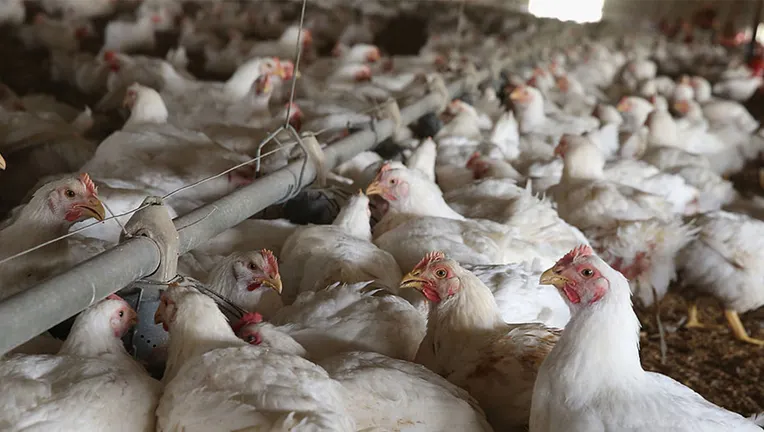Cal-Maine Foods, the largest fresh egg producer in the U.S., announced a temporary halt in production at its Texas plant due to the discovery of bird flu in chickens. Additionally, bird flu was detected at a poultry facility in Michigan. The Texas facility, located in Parmer County near the Texas-New Mexico border, saw the destruction of approximately 1.6 million laying hens and 337,000 pullets, constituting about 3.6% of its total flock.
Cal-Maine Foods, headquartered in Ridgeland, Mississippi, stated that it primarily serves markets in the Southwestern, Southeastern, Midwestern, and mid-Atlantic regions of the United States. The company is cooperating with government agencies and industry groups to manage the outbreak’s response and mitigate future risks. Efforts are being made to minimize disruptions to customers by securing production from other facilities.

Major U.S. Fresh Egg Producer Discovers Bird Flu in Texas and Michigan Plants (Credits: FOX 5 Atlanta)
Despite the outbreak, the company assured consumers that eggs currently in the market pose no bird flu risk, and there have been no recalls. According to the U.S. Department of Agriculture, properly handled and cooked eggs are safe for consumption.
The announcement follows a human case of bird flu reported in Texas, marking the first known instance globally of a person contracting this strain from a mammal. In Michigan, bird flu was detected in a commercial poultry facility in Ionia County, about 100 miles northwest of Detroit. This is the fourth instance of bird flu detection in a Michigan commercial facility since 2022.
Michigan’s Department of Agriculture and Rural Development confirmed the disease and placed the affected facility under quarantine. However, there are no anticipated disruptions to supply chains in the state. Additionally, reports of bird flu in dairy cows in Texas, Kansas, Michigan, and Idaho have raised concerns, with federal agriculture officials confirming infections in multiple locations.
The situation underscores the need for vigilant monitoring and containment measures to prevent further spread of bird flu within the poultry and dairy industries. Coordination among government agencies, industry stakeholders, and public health authorities is crucial in managing the outbreak and safeguarding food supply chains.























